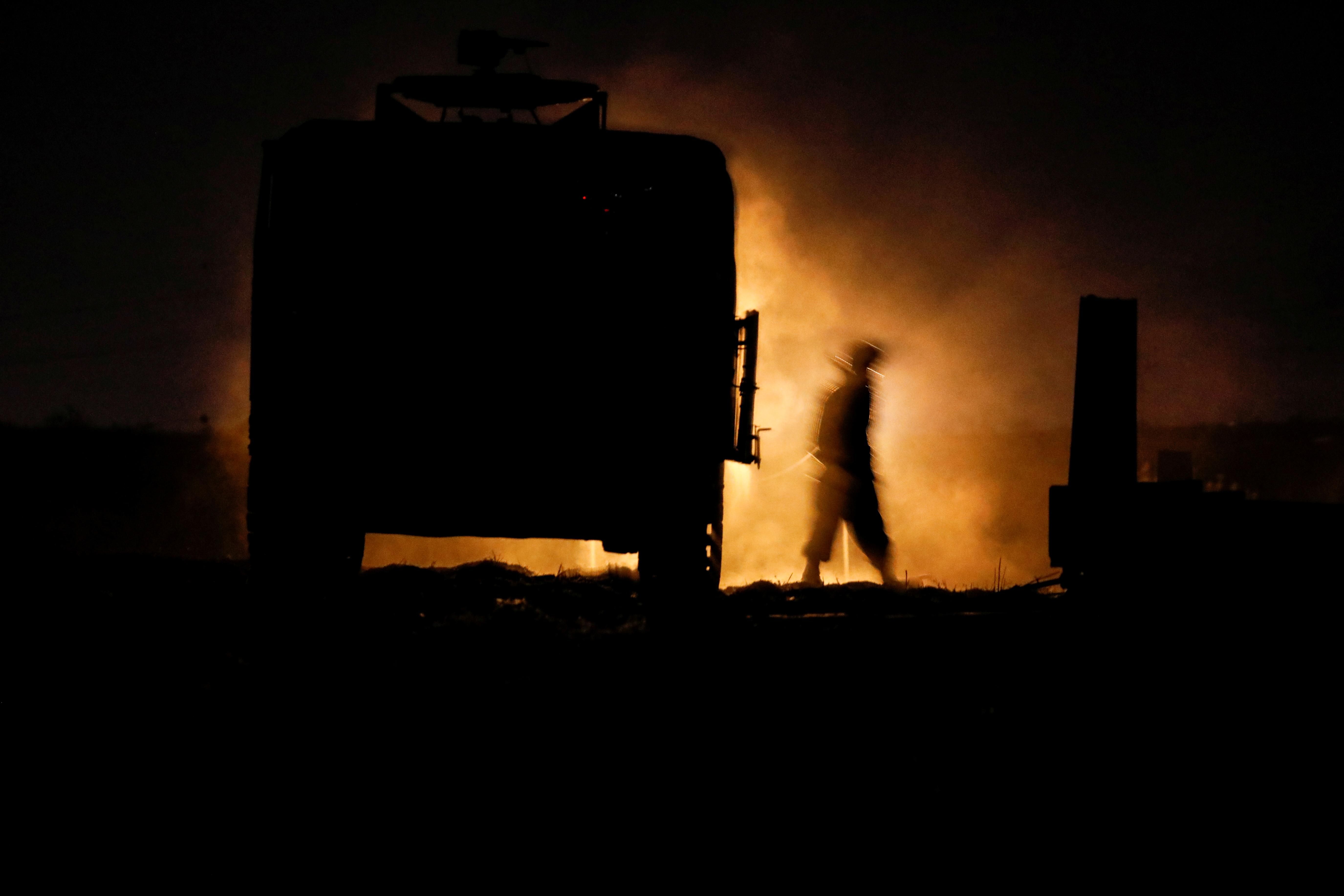News
May 17, 2021
Will there be a ceasefire in Gaza? Fighting between the Israeli military and Hamas/Palestinian Islamic Jihad militants in the Gaza Strip has now entered its second week. Over the weekend, Israel intensified its bombing of the Gaza Strip, which included targeting a building that houses Al-Jazeera and AP, two foreign media outlets, causing their reporters to hastily flee the premises (Israel has so far not substantiated its claim that Hamas intelligence operatives were working in the building.) At least 42 Gazans were killed in a single Israeli strike Sunday, bringing the Palestinian death toll above 200. Meanwhile, Hamas continued to fire rockets at southern and central Israel, resulting in several casualties. On Monday, for the first time since the violent outbreak, US President Joe Biden voiced support for a ceasefire driven by the Egyptians and others. However, Benjamin Netanyahu, Israel's prime minister, has said that the operation will "take time," and a truce is off the table until Hamas' military capabilities are significantly degraded. Civilians on both sides continue to suffer.
Southeast Asia braces for pandemic surge: COVID-19 has hardly finished with India, which is still grappling with the world's largest outbreak, but now many of the country's neighbors in Southeast Asia are bracing for their own wave of infections. Thailand on Monday reported nearly 10,000 new cases, up from about 300 at the beginning of April. The outbreak there is being driven in part by rapid spread in the country's famously cramped prisons. In Malaysia, meanwhile, new daily cases have tripled over the last month, rising to more than 4,500 last week, owing in part to Ramadan and Eid celebrations in the predominantly Muslim country. Vietnam, lauded for acting early to quash the spread last year, is now seeing a sharp increase as well, though the numbers are still small — new cases leapt from 14 daily at the beginning of May to nearly 300 over the weekend. The two big question marks (paywall) are Indonesia, where (reported) cases have so far stayed low, but could rise in the wake of the Islamic religious holidays, and the Philippines which managed to quash a surge in March but is still seeing high positivity rates. Across the region, vaccination rates are low, health care systems are creaky, and vast swathes of the population are not able to simply "work from home." The example of India's recent COVID apocalypse looms large.
Iran's presidential frontrunners: One month from Tuesday, Iranians will head to the polls to choose their next president, the person who oversees their country's economy and domestic policies while Supreme Leader Ali Khamenei attends to foreign policy and negotiations over the country's nuclear program. Nearly 600 candidates have announced their intention to run, but over the next couple of weeks, the Guardian Council, an unelected body of clerics and jurists, will nullify all but a handful of hopefuls. For now, it appears that judiciary chief Ebrahim Raisi and former parliament speaker Ali Larijani are probably the frontrunners. Raisi is a so-called hardliner, a religious conservative who vows to fight corruption and who opposes better relations with the West. Larijani, meanwhile, played a significant negotiating role in both the 2015 Iran nuclear deal with the US, UK, France, Germany, China, and Russia, as well as in a "strategic cooperation" deal with China signed earlier this year. No matter who wins the fate of negotiations over a revitalized nuclear agreement will continue to depend on the Supreme Leader, but the vote will tell us something about how Iran's people see the issue.
More For You
41.5%: The proportion of Havana’s garbage trucks that were operational this month, according to state-run media, as Cuba’s fuel crisis prompts a garbage crisis.
Most Popular
- YouTube
Sovereignty has become one of the most powerful, and least defined, words in tech policy. At the 2026 Munich Security Conference, SAP global head of government affairs, Wolfgang Dierker, explains why governments and enterprise customers are demanding more control over their data, cloud infrastructure, and AI systems amid rising geopolitical uncertainty.
- YouTube
On the sidelines of the 2026 Munich Security Conference, Annemarie Hou, Executive Director of the United Nations Office of Partnerships, joined Tony Maciulis to discuss the power of women leaders in global decision-making.
Security in a fragmented world: Cyber deterrence, NATO reform & the future of trusted tech
Feb 14, 2026
- YouTube
In a new Global Stage livestream from the 2026 Munich Security Conference, New York Times White House and national security correspondent David Sanger moderates a conversation with Ian Bremmer (President & Founder, Eurasia Group and GZERO Media), Brad Smith (Vice Chair & President, Microsoft), Benedetta Berti (Secretary General, NATO Parliamentary Assembly), and Wolfgang Dierker (Global Head of Government Affairs, SAP) on how technology and defense are colliding in real time.
© 2025 GZERO Media. All Rights Reserved | A Eurasia Group media company.
